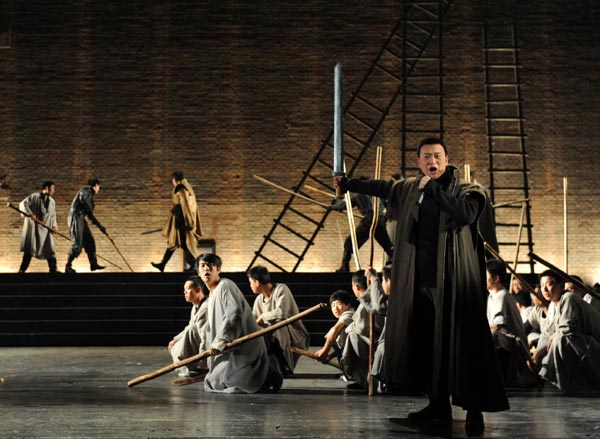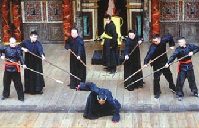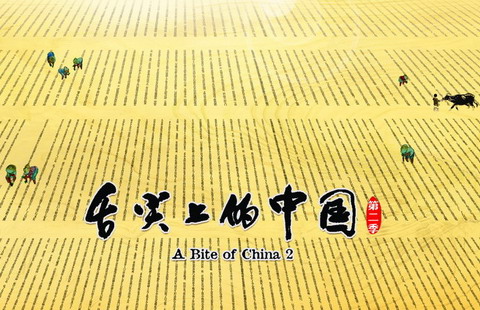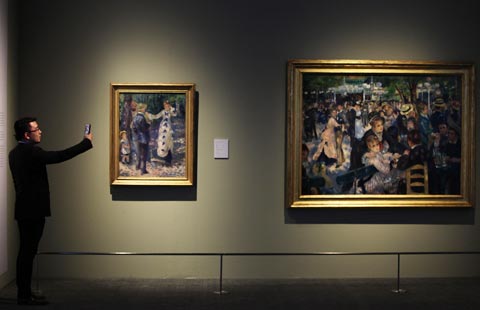The Bard in Beijing and beyond
By Raymond Zhou ( China Daily ) Updated: 2014-04-18 07:12:54
 |
|
Lin Zhaohua's production of Coriolanus has been wowing critics and audience members since 2007. Provided to China Daily |
Still cutting edge
 |
| All the world's a stage |
 |
| How I discovered the lure of Will power |
 |
| The language instinct |
To be what she calls "a translating machine" for the emotions Shakespeare conveys, Tian has to overcome her own religious restraints: "I'm a Buddhist, and I believe love is about possessing and controlling and fear of loss. So, I have to approach the story from the point of view of a non-believer."
And that, according to many in the audience, has helped her to capture the essence of Romeo and Juliet, which is young love in all-consuming blossom.
The same play was definitely subverted when Meng Jinghua, China's pre-eminent avant-garde impresario, took a stab at it in 2011. "We want to show the cutting edge of today's youth. Shakespeare was cutting edge in his time. He was forward-looking and very much the embodiment of the zeitgeist 400 years ago. I want to have a dialogue with him," said Meng, who watched 24 different productions of the play and incorporated a plethora of styles in his own, including pop, gothic, heavy metal, vampirism and collage. "That is my brand new interpretation," he said.
Like China's own Yuan Dynasty (1271-1368) dramas, Shakespeare was grounded in the grassroots, according to Yang Zao, a Beijing-based literary researcher. "If we present only the so-called faithful versions, they would attract a very limited audience. The West has taken great strides in breathing new life into these classics, and we should know how to learn from them and explore what is eternal in his work. Shakespeare is a cultural resource we should both respect and explore."
As more dramatizations flow into China through touring and filmed performances, the implicit notion that there must be one authentic version is giving way to a diverse range of interpretations. This has unchained the preconceptions of the Bard from the clutches of academics and made him accessible to the general public, which holds him in awe. People are discovering parts of his work with strong resonance and then trying to paraphrase it in their own languages and situations. Contemporary dilemmas are conjured up as perfect parallels to what's in the text.
To a growing number of Chinese, Shakespeare has morphed from a literary icon to whom one has to show sufficient respect to prove one's educational credentials, to a writer whose prescience and insight into the human condition have illuminated our own era of dizzying change.
|
|
|
|
|
|
|
|






















 Raymond Zhou:
Raymond Zhou: Pauline D Loh:
Pauline D Loh: Hot Pot
Hot Pot Eco China
Eco China China Dream
China Dream China Face
China Face




